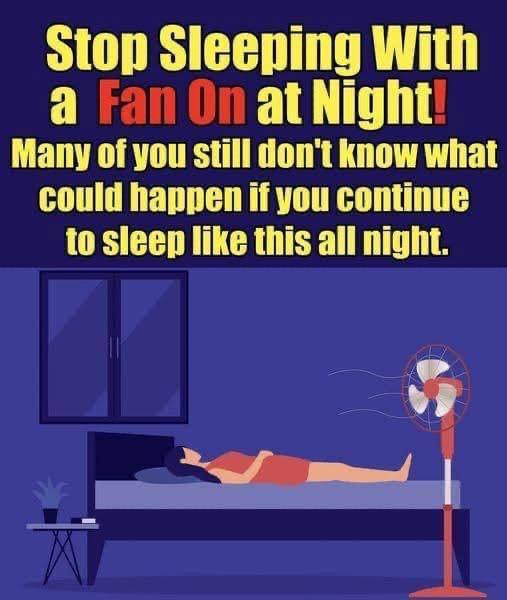
Getting a good night’s sleep is crucial for our health, and many of us use fans to stay cool at night. But did you know that using a fan while you sleep can sometimes cause more harm than good? Let’s explore how this common habit might be affecting your sleep quality.
The Hidden Downsides of Sleeping with a Fan
Dry Air and Dehydration
When a fan blows air around your room, it can dry out the moisture in the air. This leads to dry skin, parched throats, and even irritated eyes. Waking up feeling dehydrated or with a scratchy throat? Your fan might be the culprit.
Allergens on the Move
Fans don’t just move air; they also stir up dust, pollen, and other allergens that have settled in your room. This can trigger allergies or asthma, leading to sneezing, congestion, and disturbed sleep. Even if you clean your fan regularly, it can still circulate unwanted particles.
Muscle Stiffness and Cramps
Direct exposure to a fan’s cool air can cause muscles to tense up, leading to stiffness or cramps by morning. If you’ve ever woken up with a sore neck or back, your fan’s breeze might be to blame.
Noise Disturbances
While some people find a fan’s hum soothing, others might find it disruptive. Older fans can produce inconsistent noises, which may prevent you from reaching deep, restorative sleep stages.
Tips to Stay Cool Without a Fan
Choose Breathable Bedding
Opt for sheets and pillowcases made from natural fibers like cotton or linen. These materials allow for better airflow, helping you stay cool without needing a fan.
Invest in a Cooling Mattress
Modern mattresses often come with cooling technologies designed to dissipate body heat. This can help regulate your body temperature throughout the night.
Maintain Optimal Room Temperature
Keep your bedroom between 60-67°F (15-19°C) for optimal sleep conditions. Using blackout curtains during the day can prevent heat buildup, and opening windows in the evening can promote natural airflow.
Use a White Noise Machine
If you rely on the sound of a fan to fall asleep, consider a white noise machine. It provides consistent sound without the drawbacks of moving air.
Conclusion
While using a fan at night can provide immediate relief from heat, it may also introduce factors that disrupt your sleep. By exploring alternative cooling methods and making small adjustments to your sleep environment, you can enjoy a more restful and uninterrupted night’s sleep.





